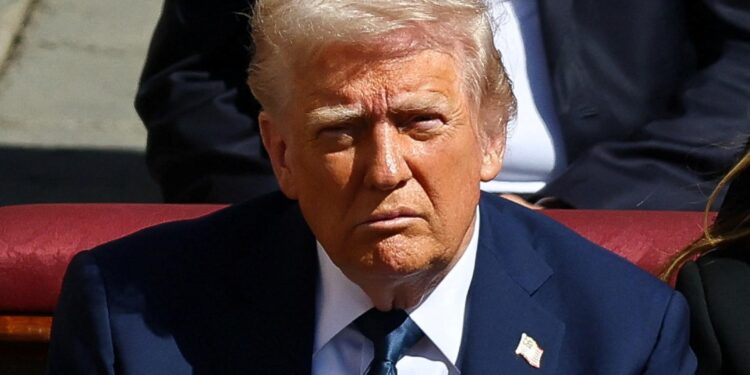Enhancing U.S.-Turkey Relations: Key Takeaways from Recent Diplomatic Discussions
In a significant diplomatic interaction, former U.S.President Donald Trump described his recent conversation with Turkish President Recep Tayyip Erdońüan as ‚Äúproductive.‚ÄĚ This dialog emerges at a time when the importance of U.S.-Turkey relations is increasingly underscored, particularly given the complex geopolitical landscape. The discussions indicate a renewed commitment to engagement between the two leaders, with analysts closely monitoring potential impacts on regional stability and international alliances.This moment represents a pivotal prospect for both leaders to address various challenges, including military cooperation and economic ties that could reshape their bilateral relationship.
Strategic Dialogue Between Trump and Erdońüan Amid Global Uncertainties
During their latest conversation, former President Trump and Turkish President Erdońüan expressed optimism about strengthening their bilateral relationship against a backdrop of global uncertainties. Trump labeled the call as “productive,” highlighting essential areas for further development. Their discussion reportedly centered on enhancing collaboration across several sectors such as defense, trade, and counter-terrorism‚ÄĒvital domains for both nations facing evolving security threats in the Middle East and beyond.
The dialogue brought forth several strategic priorities:
- Military Cooperation: Strengthening joint military operations and arms agreements.
- Economic Alliances: Expanding trade agreements to foster growth opportunities.
- Terrorism Prevention: Coordinating efforts to effectively combat extremist threats.
This exchange occurs amid rising tensions in the region, prompting both leaders to seek partnerships that not only stabilize their nations but also address broader global challenges. Anticipated face-to-face meetings are expected to further solidify these interests and initiatives.
Implications of Recent Discussions: Shaping Future U.S.-Turkey Relations
The recent call between former President Trump and Turkish President Erdońüan produced several noteworthy outcomes that could redefine U.S.-Turkey relations moving forward. Key takeaways included:
- Improved Economic Collaboration: Both leaders emphasized the need for enhanced trade relations through potential investments aimed at stimulating economic growth.
- Cohesive Defense Approaches: The discussion focused on collaborative efforts regarding regional defense strategies amidst geopolitical tensions.
- A Unified Vision on Strategic Interests: There was consensus on aligning mutual interests in energy security and counterterrorism initiatives.
The ramifications of these developments are significant for future interactions between the United States and Turkey. A focus oneconomic collaboration could lead to increased American investments within Turkey’s economy while promoting job creation throughout the region. Concurrently, commitments toward joint defense strategies may prompt a reassessment of military partnerships particularly concerning NATO dynamics. Below is an overview table outlining potential growth areas within this evolving relationship:
| Main Focus Area | Potential Benefits |
|---|---|
| Bilateral Trade Relations | An increase in trade volume leading to economic expansion |
Future Engagements: Strengthening Diplomatic Ties While Addressing Regional Challenges
The recent dialogue has been well-received by officials in Washington D.C., where former President Donald Trump engaged with Turkish leader Recep Tayyip Erdońüan over pressing global issues‚ÄĒindicating an eagerness to enhance diplomatic ties between their countries. Both leaders expressed optimism regarding upcoming visits anticipated to facilitate strategic discussions aimed at reinforcing economic connections alongside security collaborations.
Key focus areas include:
- Trade Agreements : Exploring avenues for increasing bilateral commerce .
- Military Collaborations : Joint projects designed  to enhance regional safety .
- Counterterrorism Initiatives : Collaborative approaches addressing shared threats .
The timing is crucial; both nations face considerable challenges within their regions today . As geopolitical landscapes evolve ,it becomes essential that they collaborate on issues like ongoing conflicts or rising extremism requiring coordinated responses . To support this partnership , forthcoming talks will prioritize establishing frameworks enabling continuous communication along with strategic alignment . A possible agenda might encompass:
| Agenda Item | Description |
|---|---|
| Energ y Security | D ialogues surrounding energy exports & renewable partnerships  . |
| Migrat ion Policies  : | Tactics managing migration crises effectively  . |
| E conomic Reform : | |
















